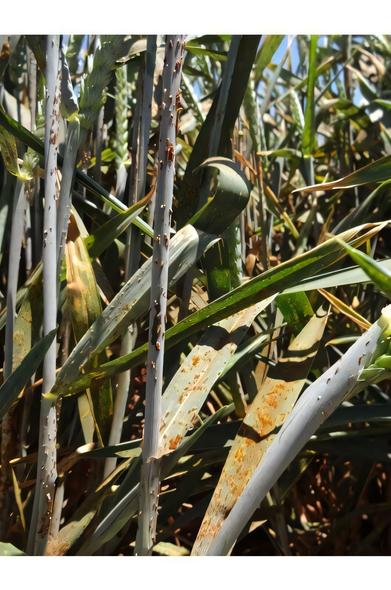
Discovery reveals key molecular event that boosts wheat's defense against devastating disease
A new study published in Science by a team of scientists across five continents led by King Abdullah University of Science and Technology (KAUST) Associate Professor Brande Wulff reports a previously unknown molecular event that initiates the immune response to a major wheat disease. The findings provide strategies to engineer wheat that has stronger immunity against infection.
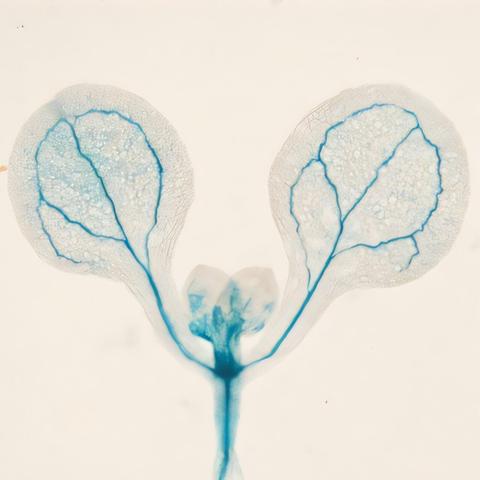
Discovery of compounds that delay flowering could boost crop yields
In an era where climate change threatens food security, scientists worldwide are searching for reliable ways to improve crop production. Extreme weather and shifting seasonal patterns can disrupt traditional agricultural cycles, making technologies that regulate the timing of plant growth invaluable for farmers worldwide.
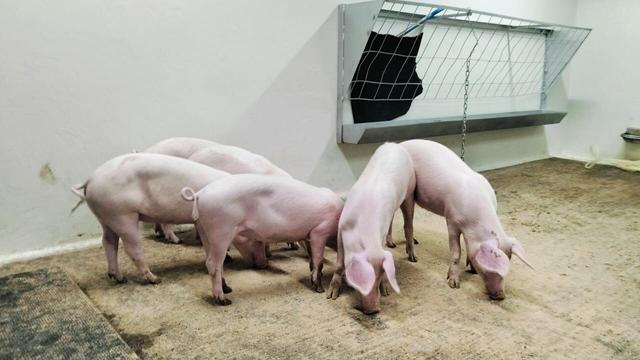
Reverse genetics system enhances vaccine development for African swine fever virus
Researchers from the J. Craig Venter Institute (JCVI), the Friedrich-Loeffler-Institut (FLI), and the International Livestock Research Institute (ILRI) have developed a reverse genetics system for African swine fever virus (ASFV). This new system will aid researchers in developing vaccines and in studying the pathogenesis and biology of ASFV, a highly contagious, deadly viral disease affecting domesticated and wild pigs, especially prevalent in Africa, Europe, Asia, and the Caribbean.
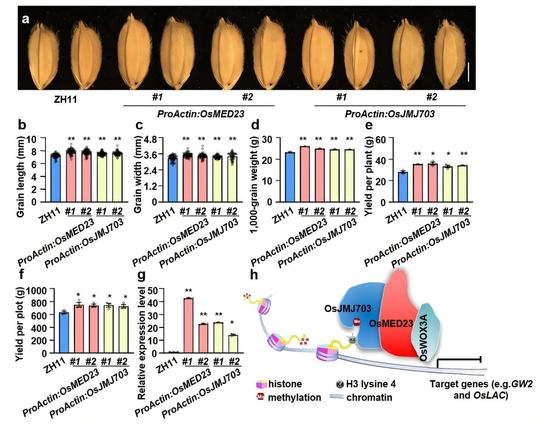
Unlocking rice's yield potential: Trio of genes holds the key, study shows
A research team led by Dr. Li Yunhai from the Institute of Genetics and Developmental Biology of the Chinese Academy of Sciences (CAS) has uncovered a novel genetic mechanism that controls grain size and yield in rice, offering promising strategies to enhance global food production.
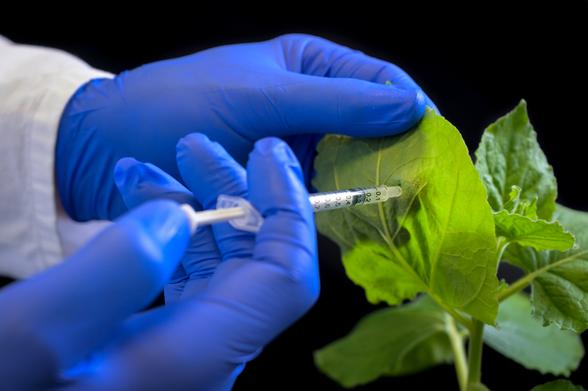
Protecting crops: RNA-based substances open up new avenue to combat a widespread plant virus
New RNA-based active agents reliably protect plants against the Cucumber mosaic virus (CMV), the most common virus in agriculture and horticulture. They were developed by researchers at the Martin Luther University Halle-Wittenberg (MLU).
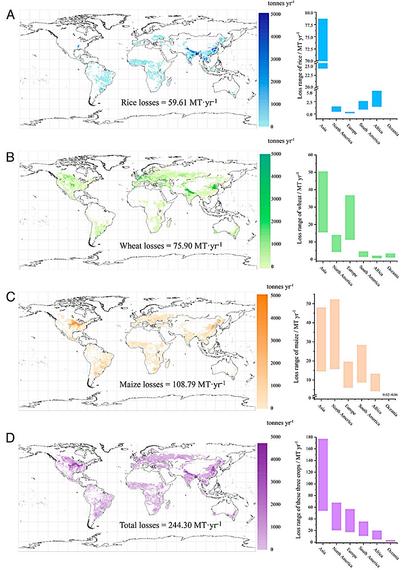
Microplastics may threaten global food supply by disrupting photosynthesis
A team of environmental researchers, Earth scientists and pollution specialists at Nanjing University, the Chinese Academy of Sciences and colleagues from Germany and the U.S. has found evidence that microplastics have a negative impact on photosynthesis in terrestrial, marine, and freshwater ecosystems.
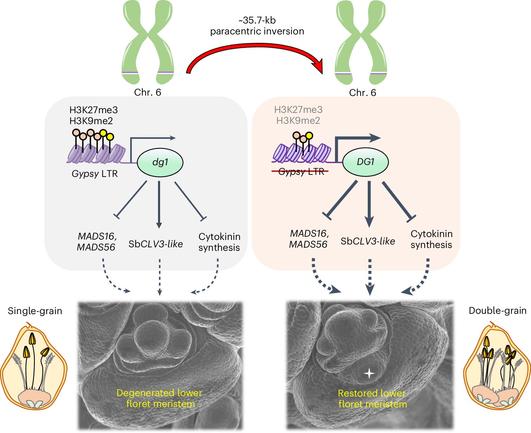
Scientists find structural variation that boosts grain number in sorghum
Chinese scientists have uncovered two major genes responsible for sorghum's double-grain spikelet that dramatically enhance grain number and crop yield. A substantial 35.7-kilobase intrachromosomal inversion at the DG1 (Double-Grain 1) promoter drives the upregulation of DG1 expression, leading to the development of double-grain spikelets that remarkably increase sorghum grain number while illustrating the critical role of genomic structural variation in plant evolution.
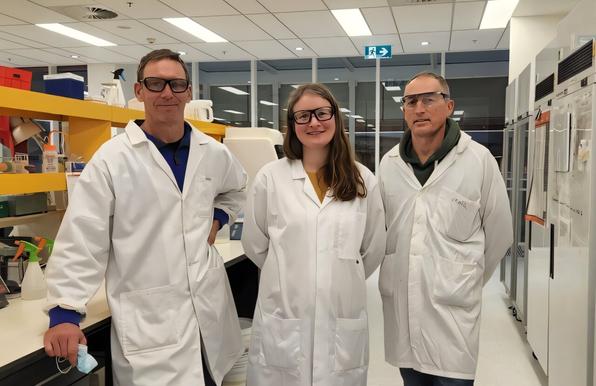
Nitrogen for nothing and your protein for free
More than half of the protein within our body can be directly traced to a process invented more than 100 years ago by two German chemists, Fritz Haber and Carl Bosch. The Haber-Bosch process artificially fixes nitrogen by breaking the inert triple bond of nitrogen gas into ammonia fertilizer.
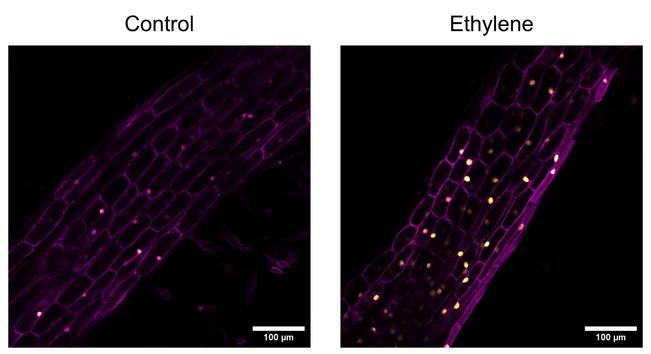
How plants control partnerships with fungi: Study finds stress hormones influence symbiosis
How do symbioses between plants and fungi develop? How do plants decide whether or not to enter into a partnership with fungi? The team of Prof. Dr. Caroline Gutjahr, director at the Max Planck Institute of Molecular Plant Physiology in Potsdam, is shedding light on the underground partnership of plants.
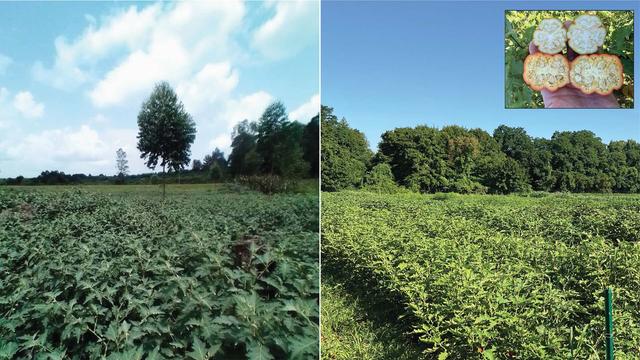
Solanum pan-genome for crucial crops paves the way for better breeding
About 75% of the world's food comes from 12 plants. Scientists estimate up to 30,000 species are edible. Not only does this bottleneck jeopardize our food supply if a major crop is impacted by drought or disease—it also limits our choices at the grocery store.









